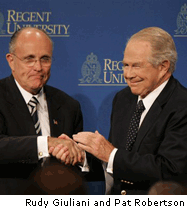 The city council is going to have a chance again to make some decisions about how they raise revenue. Specifically, they’ll have to decide whether they will be raising property taxes.
The city council is going to have a chance again to make some decisions about how they raise revenue. Specifically, they’ll have to decide whether they will be raising property taxes.
First, let’s talk about the council’s action last night. Here’s how the Journal Star reported the vote:
With an 8-2 vote Tuesday, the council endorsed a plan to have a public hearing to discuss the merits of hiking the tax rate 16 percent, from $1.29 per $100 of assessed value to $1.50.
Accurate, of course, but I think it’s worth parsing a little bit. There are two parts to this action: (1) a public hearing, and (2) a maximum tax rate to be considered.
Public Hearing
First of all, the public hearing was going to have to take place regardless of whether the council decided to do anything with the rate. That’s because tax revenue is projected to increase by more than 5% next year. City Manager Randy Oliver explains:
The increase in property tax revenue cannot exceed 5% of last year’s amount without a Truth in Taxation Hearing. The City is projecting a 3.5% increase from assessment growth and 3% from new construction. Consequently, a Truth in Taxation Hearing is required. The question is the amount to advertise.
The only way the city could get out of a Truth in Taxation hearing is to agree to lower the tax rate so the proposed revenue growth would be less than 5%. Well, no one’s calling for the tax rate to be decreased, so the hearing is a foregone conclusion.
Maximum Rate
Now the question is, as Mr. Oliver points out, “the amount to advertise.” When the city holds a Truth in Taxation hearing, they have to set a maximum rate. They could decide to set the maximum rate at its current level ($1.29 per $100 assessed value). Or they could decide to set the rate at any amount above that to leave open the option of a property tax increase. However, the maximum rate they set for the hearing does not obligate them to raise the rate to that level. Again, Mr. Oliver explains:
If you will recall last year, the Mayor and Council directed staff to advertise a rate approximately 20 cents higher than the current rate to provide the flexibility to consider elimination of the garbage fee and provide additional police and fire protection. While the Mayor and Council elected to advertise the increased rate they subsequently decided to leave the tax rate unchanged. The end result is that the adopted tax rate cannot exceed the advertised rate.
The council voted 8-2 to set the maximum rate at $1.50 per $100 assessed value — 16 cents higher than the current level. It doesn’t obligate them to raise the rate to that amount, but it does give them the option of raising the rate to that amount, if they so choose.
What’s the fairest way?
And that brings me to the real subject of this post. What is the fairest way to raise revenue for things like police and fire, garbage pickup, public works, etc.? Is it to raise that revenue through property taxes or service fees?
If you talk to at-large councilman George Jacob, he’ll tell you that he doesn’t think raising taxes is the fair way. There are lots of properties that don’t pay property taxes in the city — hospitals, churches, credit unions, and other non-profit groups. Why shouldn’t all the people/institutions who benefit from police and fire services pay to support those services?
Those who hold this view look for ways to collect revenue from these not-for-profit entities through things like utility taxes. If the city were to impose a 5% water usage fee, for instance, the elderly widow that uses hardly any water would pay next to nothing in utility taxes, but the hospitals and churches and other tax-exempt institutions that use lots of water would pay a hefty sum.
Talk to at-large councilman Gary Sandberg, though, and he has a different idea. If the belief is that the people who benefit from a service should pay for that service, then we don’t need to institute new fees, he says. Let’s start by simply eliminating subsidies that only benefit a few people and make them pay their own way. For example, instead of subsidizing downtown parking decks for over $1 million a year, let’s double our parking rates and use that money on something that would benefit the most citizens — such as eliminating the garbage fee, adding police resources, and/or improving our infrastructure.
Sandberg also points out that to replace the $6 garbage fee with a property tax increase would mean that people with homes valued under $250,000 or so would actually be paying less.
If you ask me, it seems the underlying argument here is really about whether non-profit institutions should be exempt from property taxes or not. In one sense, it wouldn’t do the city any good to debate that topic because there’s nothing they can do to change it. But it would appear that those who favor service fees over property tax increases philosophically believe that all property owners should be paying for the services from which they benefit, and service fees are a way to get that money. Thus, even though the city can’t do anything about it, I think the topic should be discussed, since it’s the underpinning of the service fee argument.
*Full-disclosure: I work for a non-profit organization that doesn’t pay property taxes.
 I’ve been spending dollar coins lately, and I’m pretty certain I’m the only one within a 50-mile radius who is using them. How can I tell? Because every cashier stares at it blankly as if I had just handed her a coonskin cap. They look at me as if to say, “What is this and what am I supposed to do with it?” So, if you’ve never seen a dollar coin before, I encourage you to click on the picture to the left and familiarize yourself with it.
I’ve been spending dollar coins lately, and I’m pretty certain I’m the only one within a 50-mile radius who is using them. How can I tell? Because every cashier stares at it blankly as if I had just handed her a coonskin cap. They look at me as if to say, “What is this and what am I supposed to do with it?” So, if you’ve never seen a dollar coin before, I encourage you to click on the picture to the left and familiarize yourself with it.
 Conservative (?) televangelist
Conservative (?) televangelist  The city council is going to have a chance again to make some decisions about how they raise revenue. Specifically, they’ll have to decide whether they will be raising property taxes.
The city council is going to have a chance again to make some decisions about how they raise revenue. Specifically, they’ll have to decide whether they will be raising property taxes.